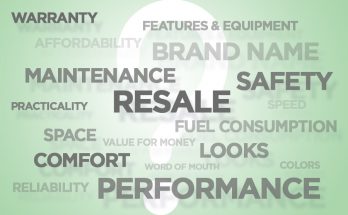It’s a common belief that purchasing a car in the last two months of the year is a bad idea, as the year-end models lose perceived value compared to next-year models arriving in January. While this practice has its merits, it also has potential drawbacks.
Related: The Importance of Test Driving a New Car
Here’s a balanced analysis of the pros and cons to help you make an informed decision.
Why People Avoid Buying Cars in November & December
- Model Year Depreciation
A car purchased in December will be labeled as a “current year model,” while one bought just a month later in January will be tagged as a “new year model,” even if both cars are identical. This distinction can significantly affect resale value. For instance, a 2024 model bought in December will appear a year older than a 2025 model purchased in January when it’s resold years later. - Psychological Value of a New Year Model
Many buyers associate the next year’s model with advancements, even when differences are negligible. The newer badge often feels like a fresher, smarter purchase.
The Hidden Opportunities of Buying a Car at Year-End
- Hefty Discounts and Incentives
Car dealerships are under pressure to clear their stock of the current year’s models to make room for incoming inventory. This can lead to:- Cash Discounts: Significant reductions on the sticker price.
- Dealer Incentives: Bonuses like extended warranties, free maintenance packages, or low-interest financing.
- Holiday Sales: Black Friday, Christmas, and New Year promotions.
- Negotiation Leverage
Low demand works in favor of buyers. With fewer people purchasing, dealers may be more willing to negotiate to meet their sales quotas before the fiscal year ends. - Immediate Availability
Unlike January, where demand for new year models can lead to long wait times, November and December buyers often have a wide selection of ready-to-go inventory. - Tax Benefits
Some buyers, especially business owners, can leverage year-end purchases for tax deductions on depreciation or expenses within the current fiscal year.
Factors to Consider Before Buying a Car at Year-End
- Compare Models
Research whether the next year’s model includes significant upgrades or new features. If it’s just a cosmetic or minor mechanical tweak, the discount on the outgoing model might be the smarter choice. - Resale Value Impact
Evaluate how long you plan to keep the car. If you’re going to drive it for a decade, the difference in resale value between a December and January purchase becomes negligible. - Manufacturer Warranties
Ensure the warranty start date aligns with your expectations. Some dealers may start the warranty clock on delivery, while others may set it to the registration date. - Financing and Insurance Costs
Compare year-end interest rates and insurance premiums with those expected in the new year. Sometimes lenders and insurers also offer promotional rates during the holidays.
Final Thoughts
Avoiding a year-end car purchase purely because of the new year tag might mean missing out on significant savings and other perks. If you’re a budget-conscious buyer who values discounts and immediate availability over next-year branding, November and December could be the perfect time to shop.
However, if you prioritize maximum resale value or the cachet of owning the latest model, waiting until January may be a better choice.
Related: Guide: Buying a Used Car in Pakistan
Remember, the best deal is not just about the price but also what aligns with your personal needs and future plans. Research thoroughly, negotiate wisely, and drive home a deal that makes the most sense for you.
Have you snagged a great year-end deal before? Share your story in the comments below!

I don’t eat, sleep or dream of cars, I am just someone who loves to see, think & write about cars. I love Ferrari in Pink but they won’t make one for me. I use X to write my full name, but that doesn’t mean I’m inspired by Altis X, in fact, my dad hates it 😀 Btw I’m an occasional writer so don’t expect too much from me 🙂



